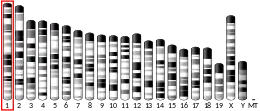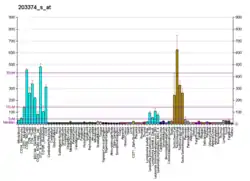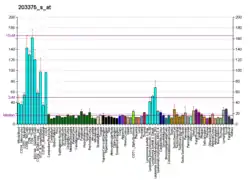| TPP2 | |||||||||||||||||||||||||||||||||||||||||||||||||||
|---|---|---|---|---|---|---|---|---|---|---|---|---|---|---|---|---|---|---|---|---|---|---|---|---|---|---|---|---|---|---|---|---|---|---|---|---|---|---|---|---|---|---|---|---|---|---|---|---|---|---|---|
| Identifiers | |||||||||||||||||||||||||||||||||||||||||||||||||||
| Aliases | TPP2, TPP-2, TPPII, Tripeptidyl peptidase II, tripeptidyl peptidase 2, TPP-II, IMD78 | ||||||||||||||||||||||||||||||||||||||||||||||||||
| External IDs | OMIM: 190470 MGI: 102724 HomoloGene: 2471 GeneCards: TPP2 | ||||||||||||||||||||||||||||||||||||||||||||||||||
| |||||||||||||||||||||||||||||||||||||||||||||||||||
| |||||||||||||||||||||||||||||||||||||||||||||||||||
| |||||||||||||||||||||||||||||||||||||||||||||||||||
| |||||||||||||||||||||||||||||||||||||||||||||||||||
| |||||||||||||||||||||||||||||||||||||||||||||||||||
| Wikidata | |||||||||||||||||||||||||||||||||||||||||||||||||||
| |||||||||||||||||||||||||||||||||||||||||||||||||||
Tripeptidyl-peptidase 2 is an enzyme that in humans is encoded by the TPP2 gene.[5][6] Among other things it is heavily implicated in MHC (HLA) class-I processing, as it has both endopeptidase and exopeptidase activity.[7]
Clinical significance and genetic deficiency
Biallelic deleterious variants in the TPP2 gene may result in a recessive disorder with immune deficiency, autoimmune disease and intellectual disability.[8][9] Some genetic variants may result in a milder disease with sterile brain inflammation mimicking multiple sclerosis.[10] These observations underline the fundamental role of TPP2 in cells of the immune system.
References
- 1 2 3 GRCh38: Ensembl release 89: ENSG00000134900 - Ensembl, May 2017
- 1 2 3 GRCm38: Ensembl release 89: ENSMUSG00000041763 - Ensembl, May 2017
- ↑ "Human PubMed Reference:". National Center for Biotechnology Information, U.S. National Library of Medicine.
- ↑ "Mouse PubMed Reference:". National Center for Biotechnology Information, U.S. National Library of Medicine.
- ↑ Tomkinson B, Jonsson AK (January 1991). "Characterization of cDNA for human tripeptidyl peptidase II: the N-terminal part of the enzyme is similar to subtilisin". Biochemistry. 30 (1): 168–174. doi:10.1021/bi00215a025. PMID 1670990.
- ↑ "Entrez Gene: TPP2 tripeptidyl peptidase II".
- ↑ Reits E, Neijssen J, Herberts C, Benckhuijsen W, Janssen L, Drijfhout JW, Neefjes J (April 2004). "A major role for TPPII in trimming proteasomal degradation products for MHC class I antigen presentation". Immunity. 20 (4): 495–506. doi:10.1016/S1074-7613(04)00074-3. PMID 15084277.
- ↑ Lu W, Zhang Y, McDonald DO, Jing H, Carroll B, Robertson N, et al. (December 2014). "Dual proteolytic pathways govern glycolysis and immune competence". Cell. 159 (7): 1578–1590. doi:10.1016/j.cell.2014.12.001. PMC 4297473. PMID 25525876.
- ↑ Atallah I, Quinodoz M, Campos-Xavier B, Peter VG, Fouriki A, Bonvin C, et al. (June 2021). "Immune deficiency, autoimmune disease and intellectual disability: A pleiotropic disorder caused by biallelic variants in the TPP2 gene". Clinical Genetics. 99 (6): 780–788. doi:10.1111/cge.13942. PMID 33586135. S2CID 231926886.
- ↑ Reinthaler EM, Graf E, Zrzavy T, Wieland T, Hotzy C, Kopecky C, et al. (December 2018). "TPP2 mutation associated with sterile brain inflammation mimicking MS". Neurology. Genetics. 4 (6): e285. doi:10.1212/NXG.0000000000000285. PMC 6244017. PMID 30533531.
External links
Further reading
- Tomkinson B, Zetterqvist O (April 1990). "Immunological cross-reactivity between human tripeptidyl peptidase II and fibronectin". The Biochemical Journal. 267 (1): 149–154. doi:10.1042/bj2670149. PMC 1131257. PMID 1691635.
- Tomkinson B (1992). "Nucleotide sequence of cDNA covering the N-terminus of human tripeptidyl peptidase II". Biomedica Biochimica Acta. 50 (4–6): 727–729. PMID 1840501.
- Tomkinson B, Wernstedt C, Hellman U, Zetterqvist O (November 1987). "Active site of tripeptidyl peptidase II from human erythrocytes is of the subtilisin type". Proceedings of the National Academy of Sciences of the United States of America. 84 (21): 7508–7512. Bibcode:1987PNAS...84.7508T. doi:10.1073/pnas.84.21.7508. PMC 299325. PMID 3313395.
- Wilson C, Gibson AM, McDermott JR (July 1993). "Purification and characterization of tripeptidylpeptidase-II from post-mortem human brain". Neurochemical Research. 18 (7): 743–749. doi:10.1007/BF00966768. PMID 8396212. S2CID 21957759.
- Martinsson T, Vujic M, Tomkinson B (August 1993). "Localization of the human tripeptidyl peptidase II gene (TPP2) to 13q32-q33 by nonradioactive in situ hybridization and somatic cell hybrids". Genomics. 17 (2): 493–495. doi:10.1006/geno.1993.1353. PMID 8406500.
- Rose C, Vargas F, Facchinetti P, Bourgeat P, Bambal RB, Bishop PB, et al. (April 1996). "Characterization and inhibition of a cholecystokinin-inactivating serine peptidase". Nature. 380 (6573): 403–409. Bibcode:1996Natur.380..403R. doi:10.1038/380403a0. PMID 8602240. S2CID 4269327.
- Geier E, Pfeifer G, Wilm M, Lucchiari-Hartz M, Baumeister W, Eichmann K, Niedermann G (February 1999). "A giant protease with potential to substitute for some functions of the proteasome". Science. 283 (5404): 978–981. doi:10.1126/science.283.5404.978. PMID 9974389.
- Ganellin CR, Bishop PB, Bambal RB, Chan SM, Law JK, Marabout B, et al. (February 2000). "Inhibitors of tripeptidyl peptidase II. 2. Generation of the first novel lead inhibitor of cholecystokinin-8-inactivating peptidase: a strategy for the design of peptidase inhibitors". Journal of Medicinal Chemistry. 43 (4): 664–674. doi:10.1021/jm990226g. PMID 10691692.
- Lévy F, Burri L, Morel S, Peitrequin AL, Lévy N, Bachi A, et al. (October 2002). "The final N-terminal trimming of a subaminoterminal proline-containing HLA class I-restricted antigenic peptide in the cytosol is mediated by two peptidases". Journal of Immunology. 169 (8): 4161–4171. doi:10.4049/jimmunol.169.8.4161. PMID 12370345.
- Strausberg RL, Feingold EA, Grouse LH, Derge JG, Klausner RD, Collins FS, et al. (December 2002). "Generation and initial analysis of more than 15,000 full-length human and mouse cDNA sequences". Proceedings of the National Academy of Sciences of the United States of America. 99 (26): 16899–16903. Bibcode:2002PNAS...9916899M. doi:10.1073/pnas.242603899. PMC 139241. PMID 12477932.
- Lindås AC, Tomkinson B (January 2005). "Identification and characterization of the promoter for the gene encoding human tripeptidyl-peptidase II". Gene. 345 (2): 249–257. doi:10.1016/j.gene.2004.11.042. PMID 15716107.
- Stavropoulou V, Vasquez V, Cereser B, Freda E, Masucci MG (July 2006). "TPPII promotes genetic instability by allowing the escape from apoptosis of cells with activated mitotic checkpoints". Biochemical and Biophysical Research Communications. 346 (2): 415–425. doi:10.1016/j.bbrc.2006.05.141. PMID 16762321.
- York IA, Bhutani N, Zendzian S, Goldberg AL, Rock KL (August 2006). "Tripeptidyl peptidase II is the major peptidase needed to trim long antigenic precursors, but is not required for most MHC class I antigen presentation". Journal of Immunology. 177 (3): 1434–1443. doi:10.4049/jimmunol.177.3.1434. PMID 16849449.
- Lindås AC, Tomkinson B (May 2007). "Characterization of the promoter of the gene encoding human tripeptidyl-peptidase II and identification of upstream silencer elements". Gene. 393 (1–2): 62–69. doi:10.1016/j.gene.2007.01.015. PMID 17343995.
This article is issued from Wikipedia. The text is licensed under Creative Commons - Attribution - Sharealike. Additional terms may apply for the media files.





